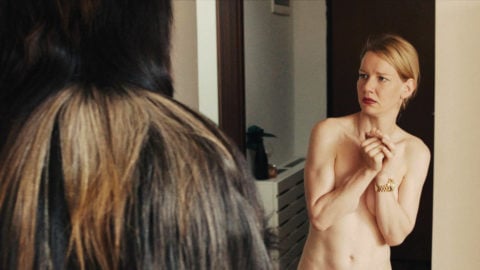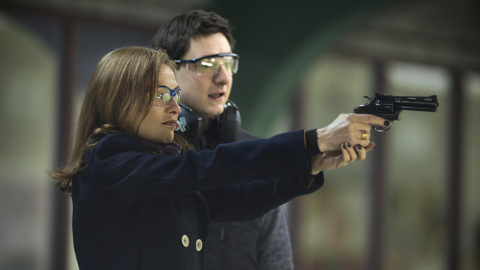
Rebel Rebel
In recent years complaints have been raised about the numbers of films by female directors at Cannes, but when it came to who held the screen in 2016’s edition, the festival was ruled by female protagonists, letting loose in one way or another. You’ll have to read our double helping of awed praise (which I second, or third) for Maren Ade’s Toni Erdmann, which essentially spoiled the rest of the festival by setting a dauntingly high bar of excellence, though not without tempering its joie de vivre with a healthy dose of angst. The same opening weekend that debuted Toni Erdmann also hosted. Andrea Arnold’s American Honey, a sprawling road movie that had its share of detractors but was still notable for its heedless Midwestern teen protagonist—palpably and bracingly hungry for experience, making hay of the traveling magazine-sales racket that she has signed up for (partly for cash, partly out of curiosity about its fast-talking rainmaker). It felt like two movies smashed into one, and immediately upon leaving its soundtracked vision of a workingman’s-dorm-on-wheels, I walked straight into the no-holds-barred private hell of Julia Ducournau’s Raw—a fitting just-before-midnight movie to cleanse (and bloody) the palate.
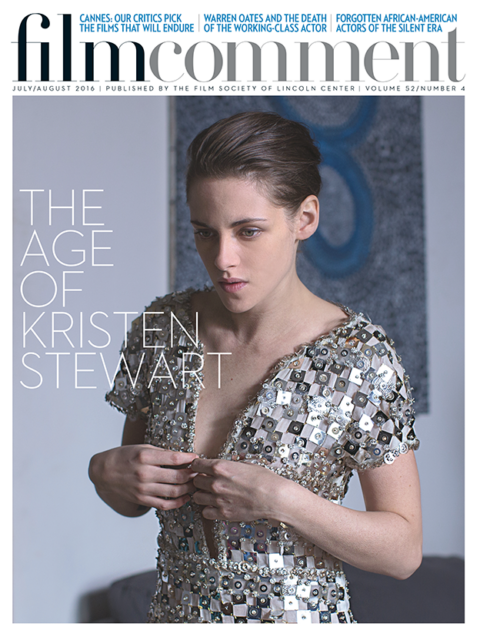
Writer-director Ducournau’s grisly veterinary-school thriller (you read that right) screened in Critics’ Week, home to a number of the festival’s finds and in some ways more reliable than the usual Competition alternative, Directors’ Fortnight. The eventually unhinged film begins innocently enough as an adolescent coming-of-age story, with bookish Justine (Garance Marillier) dropped off at the same vocational school as her sister. Marillier, who looks a bit like a tomboy younger sister to Adèle Haenel, elicits our sympathy as vegetarian Justine is subjected to first-year hazing of the most revolting variety (eating rabbit kidneys, and getting excruciating rashes to boot). The claustrophobic, greasy-haired pressure-cooker of school drama, however, suddenly and deliciously gives way to something more horrific, as Justine discovers a taste not only for meat (which she wolfs down) but for her own species. Carnivorism flows into carnality, as Raw freshly conveys the reckless sensual abandon of Justine’s tearing into her independence. Delving into brutal sibling rivalry through gamine older sister Alexia (Ella Rumpf), Ducournau’s bloodily antic plot keeps one foot planted in heightened realism rather than settling into a vampiric rut, and therefore keeps us guessing about just how far things will go.
In a year of sometimes indifferent formal ambitions, it was perhaps the gusto of Raw that stood out most (distinct, say, from the ain’t-it-cool hyperventilation of last year’s Directors’ Fortnight entry Green Room). Kleber Mendonça Filho’s second feature, Aquarius, was anchored by another invigorating renegade, a widowed holdout (Sonia Braga) in a Brazilian beachfront walk-up building that is coveted by developers. After the more stringent stylings and sociopolitical matrix of his previous feature Neighboring Sounds, Mendonça moves elegantly through this heroine’s family history while letting Braga’s performance drive the film. The Brazilian star’s deep-seated air of pride and conversational manner allow us to inhabit the surroundings right alongside her and feel her resisting and finally confronting the drama that the world wants to thrust upon her. Having a music-critic protagonist allows the film some sweet needle-drop cues, but its naturally honeyed light is just as appealing. Without drilling home the point (well, at least until the climactic scene), the housing upheaval in Aquarius also spotlights one moment in an ongoing churn of historical change and cultural appropriation. And Brazil’s own, very real presidential crisis had its moment at the festival, spilled out onto the red carpet with the director’s protest, complete with a banner.
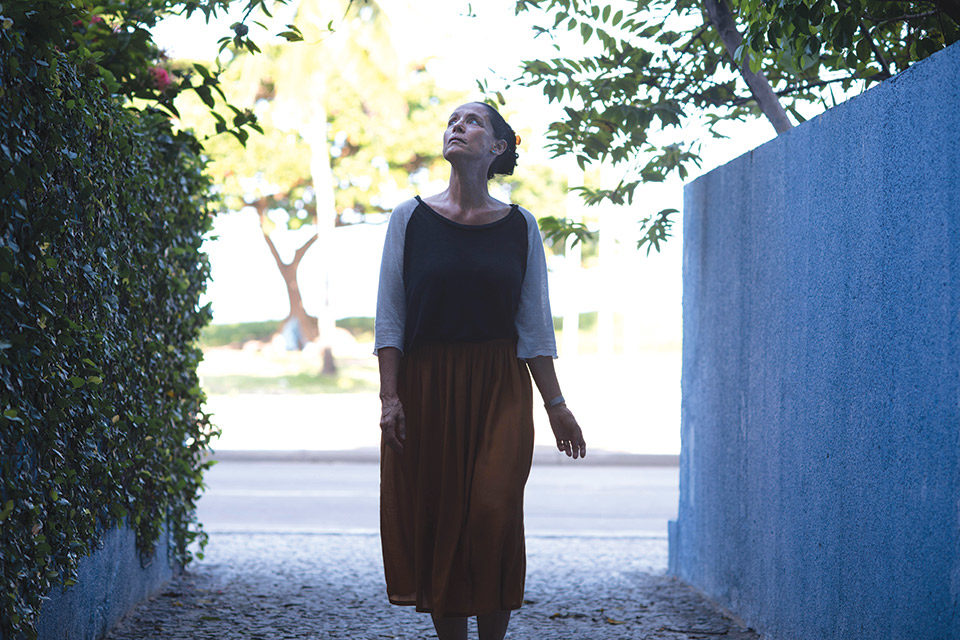
Aquarius
Mulling the lineup with fellow critics on the final evening when the Competition prizes were announced to much head-shaking, I was assured that the awarding of the Palme d’Or to Ken Loach’s I, Daniel Blake had the positive effect of puncturing the Cannes bubble and revealing the real, suffering world that lay beyond the view of us carpetbagging aesthetes. Loach’s film certainly aroused my sympathies, but the festival’s true laurel-winner, Toni Erdmann, wasn’t some effete piece of dramedic escapism. Quite the contrary, Ade’s extraordinary film featured some of the sharpest and most precise accounts of gender tensions in the contemporary workplace and of corporate workings that I can remember. It is, on top of everything else, a vibrantly political work at multiple levels. Likewise, Jim Jarmusch’s documentary Gimme Danger—aka “Storytime with Iggy Pop”—may be a cycle of rock-scene war stories, but it also had a working-class backbeat that never failed to remind you of the fragile conditions under which your entertainment is created. Most striking is a clip of Iggy Pop’s speech at the Rock and Roll Hall of Fame, in which he pronounces that “All the poor people who actually started rock ’n’ roll are cool.”
Another headliner documentary couldn’t help but remind me of the circumstances of its creation, because of the access it involved: the Directors’ Fortnight entry Risk, Laura Poitras’s much-anticipated first feature since CITIZENFOUR. Foreshadowed in many ways by shorts previously premiered as part of The Intercept’s Field of Vision, the new film tracks WikiLeaks mastermind Julian Assange in his state of perpetual seclusion and flight as he fights for his freedom while in captivity. While lacking the narrative snap of CITIZENFOUR, it nonetheless returns us to the heightened state of awareness one tends to feel as the quarry of surveillance states (much as a recession tends to lay bare the workings of an economy). Among the film’s best tidbits (besides a cleverly estranging, nearly Marx Brothers moment when Lady Gaga materializes to interview Assange) is the paranoia-inducing revelation that keystrokes at a computer can be captured by an observer monitoring nearby power lines for vibrations. “It’s a signal-processing problem,” one of the subjects of the film, activist Jacob Appelbaum, explained to me about the technique after the screening. As in, an eminently solvable problem… The mood induced by the film gave the creepy Dolby trailer slogan that preceded the screening—“ALL AROUND YOU”—a new air of menace.
Lighter fare could be found in another Directors’ Fortnight selection, the appealingly sentimental and wryly comic animated feature My Life as a Zucchini. Its fairly standard story follows a boy who ends up in an orphanage and must navigate the foibles of the other children, who range from hapless to bullying. Yet the frank, resolutely child’s-eye perspective of the writing and the subtleties of color and compositional detail keep the movie from being just another tale of self-discovery with its built-in peanut gallery of oddballs. Directed by Claude Barras with an acuity for the kids’ all-consuming emotional states, the charming, hour-long-and-change film was written by Céline Sciamma, who’s demonstrated her knack for getting into the headspace of children and teens (as in past Fortnight opener Girlhood). Bonus points for the party during a winter class trip when the tykes dance to Grauzone’s “Eisbär.”
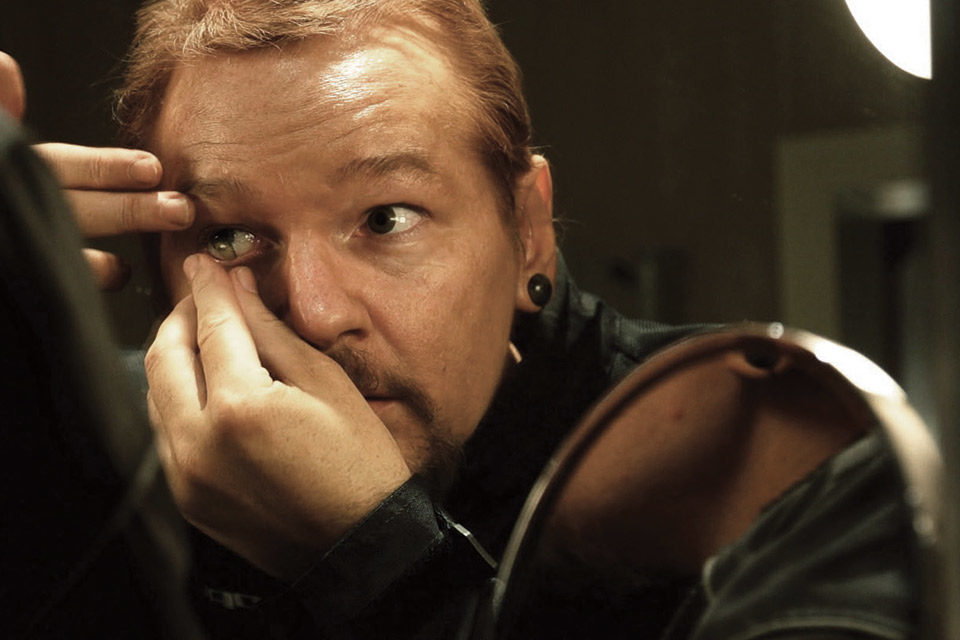
Risk
Through Cannes Classics, the festival also featured its usual raft of restorations to place alongside the main slate’s account of merous opportunities to celebrate cinephilia itself. Directed by Benoît Jacquot, Pascal Merigeau, and Guy Seligmann, Gentleman Rissient consists of the titular film-culture god regaling the camera with stories, in a living room equipped with a projection television: a typical shot begins with a clip shown on the wall, before panning over to him. Although the doc and its clips look a fright, and Rissient was the subject of a previous film by critic Todd McCarthy nearly a decade ago, his anecdotes about filmmakers remain worth hearing for their present-for-the-birth pedigree, ranging from being privy to Fritz Lang’s obsessive daily logbook, to getting close with Clint. But the greatest takeaway, epitomized by Rissient stumping for an obscure recent Indonesian police drama, is one that Cannes itself would do well to heed: going beyond simply affirming known masters of cinema, but sussing out new talents, wherever they may lie across the globe.



